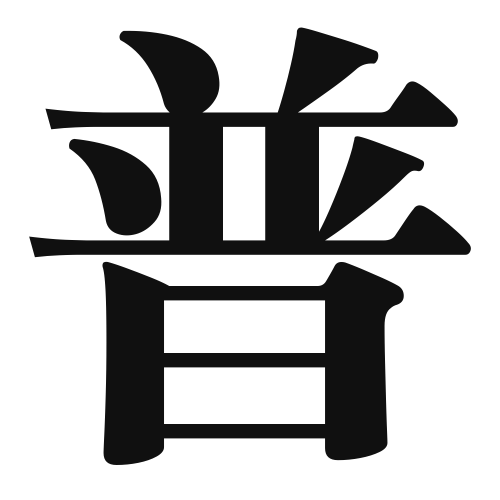1. Overview of Meaning
The kanji “普” (pronounced “fu” or “pu”) means “universal,” “general,” or “common.” It conveys the idea of something that is widespread or applicable to many situations.
2. Formation and Radical
Formation of the Kanji: The kanji “普” is a compound character (会意文字) that combines elements to convey its meaning. It consists of the radical “毛” (meaning “fur” or “hair”) and the character “普” itself, which suggests a sense of spreading or covering widely.
Radical: The radical of “普” is “毛,” which often relates to things that are widespread or have a covering nature.
3. Examples of Usage
Common Words and Phrases: Some frequently used words that include “普” are “普及” (fukyu, meaning “popularization”) and “普遍” (fuhen, meaning “universal”).
Example Sentences in Daily Conversation:
- この技術は普及しています。 (This technology is becoming widespread.)
- 普遍的な価値観が必要です。 (We need universal values.)
4. Synonyms and Antonyms
Similar Kanji: A similar kanji is “共” (meaning “together” or “common”), but it emphasizes the aspect of sharing or jointness rather than the broad applicability of “普.”
Antonyms: An antonym of “普” is “特” (toku, meaning “special” or “particular”), which refers to something that is unique or not common.
5. Cultural and Historical Background
Relation to Japanese Culture: The concept of “普” is significant in Japanese culture, where the idea of universality and commonality is often valued in social interactions and community life.
Proverbs and Idioms: An example of a related proverb is “普遍的な真理” (fuhenteki na shinri), which means “universal truth,” highlighting the importance of shared understanding across different contexts.
